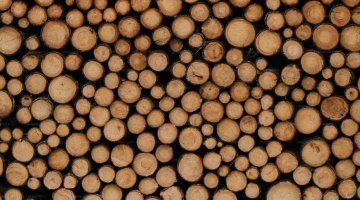Beyond the Lab: Exploring Medical Intuition as a Last Resort for Unsolved Health Mysteries
The Limits of Modern Science
In an era where medical advancements have conquered countless diseases and extended human life expectancy, it’s easy to assume science holds all the answers. Yet, for some patients, even the most cutting-edge diagnostics and treatments fall short. When exhaustive tests yield no diagnosis, or when therapies fail to alleviate suffering, the boundaries of conventional medicine become starkly apparent. These cases—often labeled as "medically unexplained" or "treatment-resistant"—leave patients and their families grappling with despair, searching for hope beyond the sterile walls of a clinic. Could consulting a medical intuitive, a practitioner who claims to perceive health issues through extrasensory insight, offer a final lifeline?
What Is a Medical Intuitive?
A medical intuitive is not a doctor in the traditional sense, nor do they rely on stethoscopes, MRI scans, or blood panels. Instead, they purport to use intuitive abilities—sometimes described as a heightened sense of perception or even psychic insight—to identify the root causes of a patient’s physical, emotional, or energetic imbalances. Practitioners like Carolyn Myss or Edgar Cayce and Amy Elizabeth have popularized the concept, suggesting that illness often stems from factors invisible to scientific tools, such as emotional trauma or spiritual misalignment. While skeptics dismiss it as pseudoscience, proponents argue it’s a complementary approach that fills gaps where empirical methods falter.
When Science Runs Dry
Consider the case of a patient with chronic fatigue syndrome (CFS), a condition that baffles many physicians. Bloodwork might show no anomalies, and imaging scans could reveal nothing actionable, yet the patient remains bedridden, plagued by unrelenting exhaustion. Or take intractable migraines that defy every medication and lifestyle adjustment. In such scenarios, after years of dead-end referrals and inconclusive results, patients may feel abandoned by the system. It’s at this crossroads—where science shrugs its shoulders—that a medical intuitive might step in, offering a fresh perspective. They might suggest, for instance, that the CFS stems from unresolved grief or that the migraines signal a dietary sensitivity overlooked by standard tests.
The Promise and the Peril
The allure of medical intuition lies in its promise of answers when all else fails. Anecdotes abound of patients who, guided by an intuitive’s insights, uncovered hidden infections, pursued unconventional therapies, or addressed psychological wounds—and found relief. Yet, the field is fraught with risks. Without regulation or standardized training, anyone can claim to be a medical intuitive, leaving vulnerable patients open to exploitation. Misdiagnoses could delay critical care, and the lack of scientific validation means outcomes are unpredictable. For every success story, there’s a cautionary tale of dashed hopes or financial loss. Still, for those with nowhere else to turn, the potential reward may outweigh the uncertainty.
Bridging the Gap or Crossing a Line?
Critics argue that turning to medical intuition undermines the rigor of evidence-based medicine, potentially eroding trust in a system built on decades of research. Supporters counter that it’s not about replacing science but augmenting it—offering a holistic lens when reductionist approaches hit a wall. Perhaps the real question is whether desperation justifies exploration beyond the known. For a patient facing a terminal prognosis or a quality of life reduced to ashes, the choice to consult a medical intuitive might not be about proof but about reclaiming agency in a narrative of powerlessness.
A Last Hope Worth Considering?
When science has no more solutions, the decision to seek a medical intuitive is deeply personal. It’s not a panacea, nor a substitute for professional care, but a potential tool in a patient’s arsenal—one that demands discernment and an open mind. For some, it could spark a breakthrough; for others, it might simply provide closure. As medicine continues to evolve, perhaps the greatest lesson lies in acknowledging its current limits—and respecting the human drive to seek answers, wherever they may be found. In the end, when all conventional doors close, a medical intuitive might just be the key to one that opens.
More to Read:
Previous Posts:



